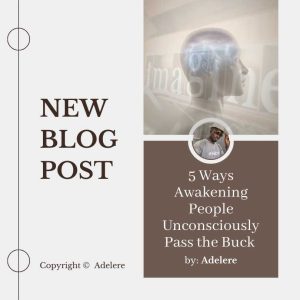
RESTORE YOUR #PERSEVERANCE OF THE #IDEAL: RISE ABOVE THE SUBTLETY OF #GIVINGUP
Reading Time: 2 minutesThere’s a surprising way of thinking that seems to be good, sometimes independent and even positively powerful. Yet it is
WELCOME TO THE POWER OF AWAKENED IMAGINATION ROYAL ACADEMY

CHAPTER NINE
“And with many such parables spake he the word unto them, as they were able to hear it. But without a parable spake he not unto them: and when they were alone, he expounded all things to his disciples.”
… Mark 4:33, 34
This collection of parables which is called the bible is a revelation of Truth expressed in symbolism to reveal the Laws and purposes of the mind of man. As we become aware of deeper meanings in the parables than those which are usually assigned to them, we are apprehending them mystically.
For example, let us take a mystical view of the advice given to the disciples in Matthew 10:10. We read that as the disciples were ready to teach and practice the great laws of mind which had been revealed to them, they were told not to provide shoes for the journey. A disciple is one who disciplines his mind that he may consciously function and act on higher and higher levels of of consciousness. The shoe was chosen as a symbol of vicarious atonement or the spirit of “let-me-do-it-for-you”, because the shoe protects the wearer and shields him from impurities by taking them upon himself. The aim of the disciple is always to lead himself and others from the bondage of dependency into the liberty of the Sons of God. Hence the advice, take no shoes. Accept no intermediary between yourself and God. Turn from all who would offer to do for you what you should do, and could, do far better yourself.
“Earth’s crammed with Heaven, And every common bush afire
with God, But only he who sees takes off his shoes.”
… Elizabeth Barrett Browning
“Verily I say unto you, inasmuch as ye have done it unto one of the least of these my breathren, Ye have done it unto me.”
… Matthew 25:40
Every time you exercise your imagination on behalf of another, be it good, bad or indifferent, you have literally done that to Christ, for Christ is awakened Human Imagination. Through the wise and loving use of imagination, man clothes and feeds Christ, and through ignorant and fearful misuse of imagination, man disrobes and scourges Christ.
“let none of you imagine evil in your hearts against your neighbor” … Zechariah 8:17, is sound but negative advice. A man may stop misusing his imagination on the advice of a friend; he may be negatively served by the experience of others and learn not to imagine, but that is not enough. Such lack of use of the creative power of imagination could never clothe and feed Christ. The purple robe of the Son of God is woven, not by not imagining evil, but by imaging the good; by the active, voluntary and loving use of imagination.
“Whatsoever things are of good report; if there be any virtue, and
if there be any praise, think on these things.”
…Philippians 4:8
“King Solomon made himself a chariot of the wood of Lebanon. He made the pillars thereof of silver, the bottom thereof of gold,
the covering of it of purple, the midst thereof being
paved with love…” … Song of Solomon 3: 9, 10 The first thing we notice is “King Solomon made himself”. That is what every man must eventually do – make himself a chariot of the wood of Lebanon. By chariot, the writer of this allegory means
Mind, in which stands the spirit of Wisdom – Solomon – controlling the four functions of Mind that he may build a world of Love and Truth.
“And Joseph made ready his chariot and went up to meet Israel his father.” “What tributaries follow him to Rome to grace in captive bonds his chariot wheels?” If man does not make himself a chariot of the wood of Lebanon, then his will be like Queen Mab’s: “She is the fairies’ midwife; … her chariot is an empty hazelnut.” The wood of Lebanon was the mystic’s symbol of incorruptibility. To a mystic, It is obvious what King Solomon made himself. Silver typified knowledge, gold symbolized wisdom, and purple – clothed or covered the incorruptible Mind with the red of Love and the blue of Truth.
“And they clothed him with purple.”
… Mark 15:17
Incarnate, incorruptible four-fold wisdom, clothed in purple – Love and Truth – the purpose of man’s experience on earth.
“Love is the sage’s stone;
It takes gold from the clod;
It turns naught into aught,
Transforms me into God.”
… Angelus Silesius

Reading Time: 2 minutesThere’s a surprising way of thinking that seems to be good, sometimes independent and even positively powerful. Yet it is

Reading Time: 2 minutesQ: Here’s my question, Adelere: How do I permanently merge with the version of myself who already trades successfully, calmly,

Reading Time: 4 minutesAre you a business executive or an experienced manager with a burning desire for business growth, increased profitability, and unparalleled

Reading Time: 6 minutesAre you ready to experience a life of complete wellness? I tell you, the Law of Assumption holds the key!

Reading Time: 4 minutesIt is quite easy for a lot of people to pass the buck when someone is not yet consciously set

Reading Time: 4 minutesThe divine man in you must become cultivated and attuned to his own inner world because there are worlds within